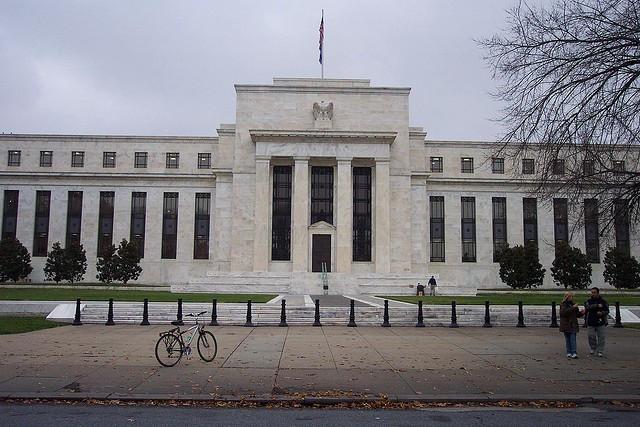Fed Rate Hike to Dampen Appeal of Euro Bonds, Says Moody's

With the Federal Reserve apparently preparing for its first rate hike since 2006 by early next year, portfolio adjustments in favour of US debt will affect eurozone sovereigns, while tighter dollar liquidity will impact inflows to emerging markets, Moody's said on Thursday.
"The opposite trends of the policy paths of these (Fed, BoJ, ECB) central banks could also result in greater volatility in the currency and stock markets around the world in the short term, as global investors respond by rebalancing their portfolios," the Moody's report on 6 November said.
Euro Area, Japan and EM
The Euro Area and Japanese economies will benefit from the relatively accommodative monetary conditions and the resulting depreciation of the euro and the yen, but portfolio rebalancing by global investors will take away a portion of those benefits, Moody' said.
Yields on Euro Area sovereign bonds are at historical lows – with several countries benefiting from yields that are already lower than those of US Treasuries, Moody's noted.
"A potential reversal in the flow of funds could adversely impact the funding conditions of EA Sovereigns, with possibly higher borrowing costs, particularly for those countries that are reliant on foreign investors," the rating agency said.
Moody's said loose monetary policy by the BoJ and ECB will only partially offset the impact of Fed tightening on EM inflows.
"The tightening of these external financing conditions as US interest rates rise can therefore be a headwind for these economies, only partially compensated by the looser condition in the Euro Area and in Japan," Moody's said.
Fed Rates and US Banks
The rise in Fed rates will result in re-pricing of US bank's securities holdings, which will decrease the related net interest margins, and more so with smaller banks, Moody's said.
"Most large US banks have a short duration position on their security books, dampening their sensitivity to rate rises, but smaller ones appear to have added duration on their security portfolios in the search for yield, so the impact will be more," according to Moody's.
Gradual Hikes
The US jobs market is still not out of woods, so the Fed is unlikely to set out to a faster rate normalisation path, Moody's said.
"Although rapid hiring has pushed the unemployment rate just below 6% in September 2014 –close to the level at the start of the global crisis, some slack still remains as evident in the declining labour force participation rate and subdued wage growth," Moody's said.
"This means that although interest rates will be hiked next year, the pace will likely be cautious and measured."
© Copyright IBTimes 2025. All rights reserved.






















